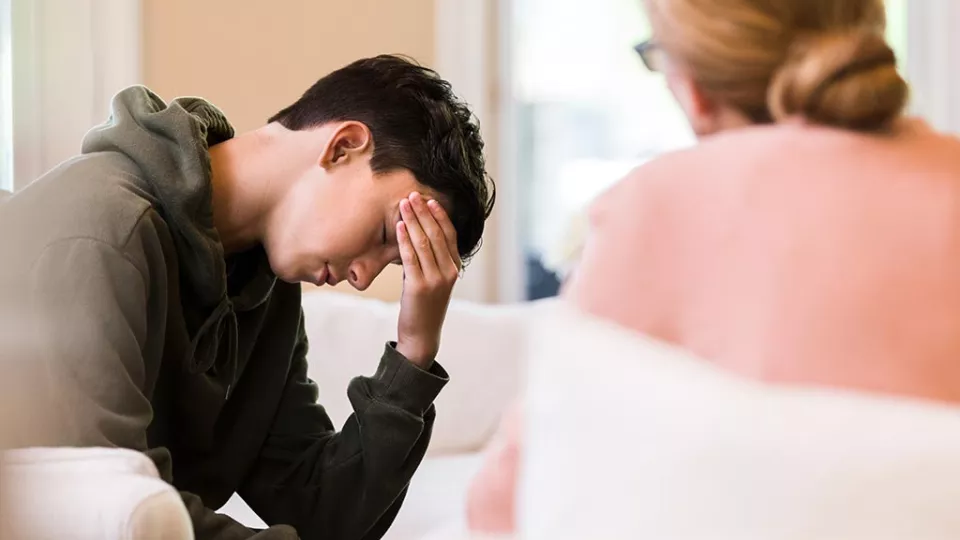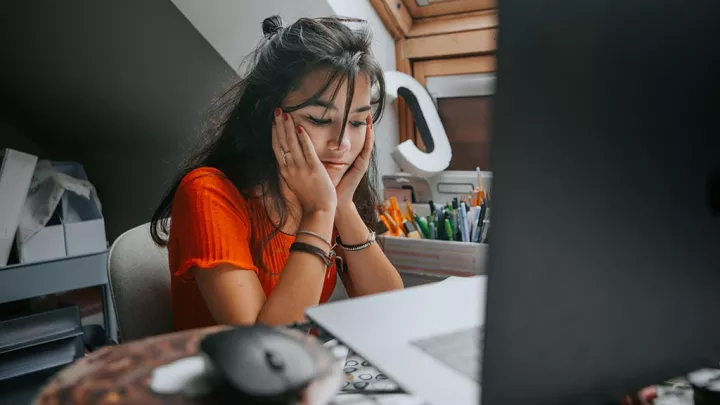
How Stress, Anxiety Contribute to Youth Violence
It only takes a quick Google search to find an up-to-the-minute list of school shootings in the United States. According to Education Week’s 2021 School Shooting Tracker, there were 34 last year. On Nov. 30, many people watched in grief and horror as news broke about school shooting No. 28, in which a 15-year-old Michigan high school student opened fire on his classmates, killing four and injuring six others and a teacher.
One week later on Dec. 7, U.S. Surgeon General Vivek H. Murthy issued an advisory—a rare message to the nation “reserved for significant public health challenges that need the nation’s immediate awareness and action”—on the emerging youth mental health crisis. Murthy urged institutions, community centers, schools, parents, family friends and others to rapidly come together to provide resources and support for our nation’s youth.
School shootings and violence on campus are not new, but they are becoming more commonplace. Nearly two years into the COVID-19 pandemic, young people are in the midst of a mental health crisis that has been exacerbated by the pandemic itself.
Stephanie Marcy, PhD, ABPP, a licensed psychologist and Medical Director of Integrated Behavioral Health in General Pediatrics at Children’s Hospital Los Angeles, says she has noticed a steep rise in anxiety and negative behaviors—but has advice for how adults can help the young people in their lives.
COVID restrictions, anxiety and loss of control
In her clinical work, Dr. Marcy sees firsthand the negative mental health impacts of the pandemic. While the vast majority of young people facing mental health issues do not carry out acts of violence, she has seen a “staggering” increase in the number of children, adolescents and parents presenting with moderate to severe anxiety, depression, and grief for all that was lost during the pandemic.
“The relationship between control and anxiety has been studied for decades,” says Dr. Marcy, “with the general finding that the less one feels they have control over a particular outcome, the more anxiety they will experience. When the country shut down literally overnight, we lost our sense of control, which made most of us scared and anxious. People could not control the fact that their place of work shut down and they lost their income, that they could not see a family member or loved one even if they were ill or dying, or that their children could not go to school and were forced to stay home. Most people experienced some type of loss, and many people lost a great deal.”
According to Dr. Marcy, anxious parents are more likely to engage in behaviors that, in turn, make their children more anxious, so it is not surprising that the rate of anxiety in children has gone up significantly during the pandemic. In fact, a recent finding published in JAMA Pediatrics looked at over 80,000 youth globally and found that the prevalence of anxiety symptoms in children has doubled as compared to pre-pandemic estimates, to an alarming rate of 20.5%.
Despite reopening, youth aggression on the rise
In the summer of 2021, with vaccines widely available and talk of offices and schools reopening in the fall, it started to feel like life was getting back to [a new] normal. Mask mandates and indoor dining restrictions were lifted, and many people hoped that the details of life they used to take for granted were coming back under their control. So why didn’t the anxiety lift too?
“When I started to see more anxiety in our youth when school re-opened, I realized, ‘Okay, this is normal. Of course, they’re anxious,” says Dr. Marcy. “They’ve been away from this for 18 months. They just need to adjust.”
Contrary to her prediction, though, Dr. Marcy is seeing the anxiety that set in during the lockdown causing secondary behaviors and symptoms that are even more concerning: aggression, violence and bullying. The Washington Post reported that the number of gun-related incidents in schools during the first three months of the 2021-22 school year are more than triple the amount during the same time period in 2019.
It’s important to remember that anxiety can affect how well children can pay attention, understand and retain information. With many kids already behind due to gaps in learning during home-schooling, further regression exacerbates the anxiety which can lead to school avoidance. Teachers are also observing increased rates of students withdrawing from friends, abusing drugs and alcohol, battling depression and even experiencing suicidal ideation.
Parents and other adults can make a difference
In his recent advisory, the Surgeon General offered hope: “Mental health challenges in children, adolescents and young adults are real, and they are widespread. But most importantly, they are treatable, and often preventable.”
As we continue to navigate this ongoing pandemic, Dr. Marcy says it is crucial that adults model appropriate and positive behaviors that are likely to contribute to children’s resilience and success.
“First, having at least one stable, responsive and nurturing adult in a child’s life is a huge protective factor,” she says. “It doesn’t have to be a parent, just someone who can convey to the child that they are important, valuable and cared for.”
Dr. Marcy also stresses the importance of teaching and modeling core life skills like mindfulness, conflict resolution, problem-solving, coping and stress management. “Help your child get good sleep, physical activity and proper nutrition. Try to spend time outside in nature.”
Finally, parents need to model self-care by giving themselves the time and space to achieve a sense of calm, peacefulness and self-regulation. Even a few minutes of reprieve from their stress can go a long way.
“This practice is about letting your child ‘borrow your calm’ rather than share your chaos,” she explains. “But first you have to create your own calm for them to borrow.”
Click here to learn about the comprehensive pediatric mental health services at CHLA.
For more from Dr. Marcy, read her article in the American Academy of Pediatrics newsletter.


